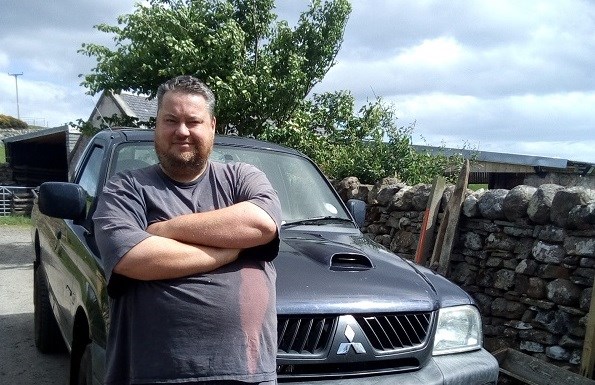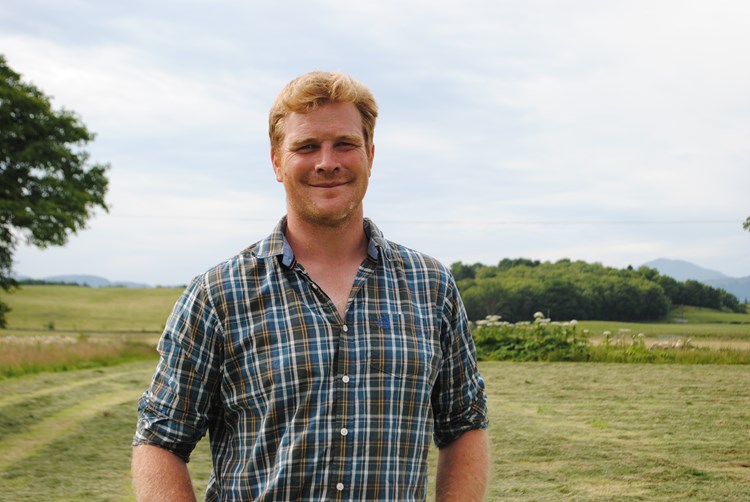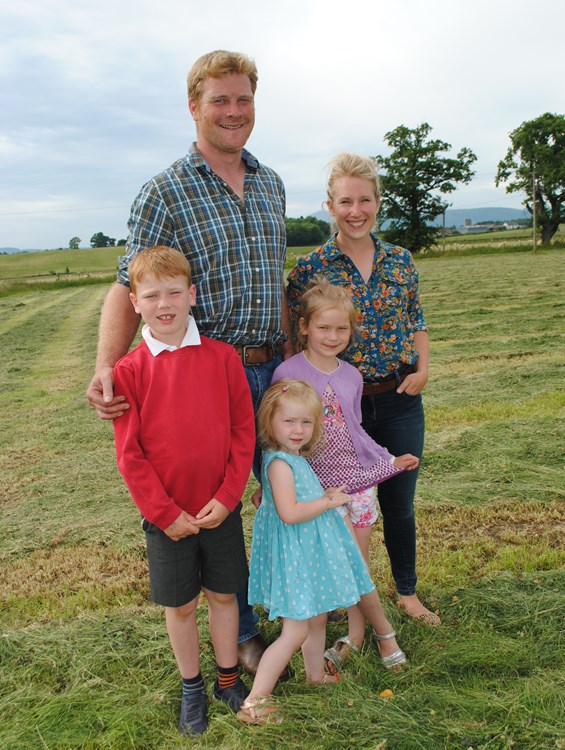What is the future of farming?
Brexit or no Brexit, the Common Agricultural Policy as we know it is coming to an end, and change is in the air. It’s not just the threat to our current subsidised system, although this makes change inevitable. It’s also a growing recognition that our system is overstretched, our soils are exhausted, each new pesticide only works for 20 years or so, global warming is leading to wetter and more extreme weather…there’s a feeling that things can’t go on as they are.
As in all areas of life, some in farming will bury their head in the sand and wait for the axe to fall. Others will step sideways – think differently, and try new things. Soil Association Scotland’s three-year award-winning Future Farming Scotland programme has encouraged doing things differently through knowledge-sharing, on-farm events and field labs. At the end of those three years, and as we consider our new programme, our Future Farming conference asks the brave and nimble farmers who have participated to share their experiences.
“Before, I was more ‘burn and turn’”

Picture: Graeme Bethune
“Before, I was more ‘burn and turn’,” says sheep farmer Graeme Bethune of Ballachly Farm in Caithness, who will be speaking at the conference about rush control. “Ten years ago a baling contractor came in with big machine and, alongside my machines, over the course of two years broke half the pipe clay drains in the productive haylage field. The volume of grass dropped like a rock. I got a Crofting Agricultural Scheme Grant (CAGS) grant to put in a substantial modern drainage system, then I ploughed and reseeded it. The first year the grass didn’t come quickly and the weeds got in first – docks and creeping thistle and rushes for the first time. The next year I selectively oversprayed the field, which didn’t kill the rushes but killed all the clover. That’s when I started going to the Soil Association events.”
Graeme says the main thing he learned is that there isn’t one big solution. “Now I’m adapting a system that suits me, my animals, my machinery. It’s incremental not instant. The rushes are not the primary problem, they’re the symptom of another problem.”
“Now I make all my decisions under the idea that what I spend must bring me the greatest return. Burn and turn is expensive, and doesn’t bring me a good return.
“From the courses I learned to dig test pits all over the fields instead and I realised I had a plough pan – a sealed layer that was preventing the water draining properly. Then between the wet, my tractor and the contractor’s baling I had surface compaction, which I had also learned to recognise. It all clicked in my brain.”
"It's a combination of little things"

Picture: Duncan McEwen
Former Monitor Farmer Duncan McEwen of Arnprior Farm in Stirling says the change he's made that has had the biggest impact is getting more clover into his swards. “It’s red clover for finishing lambs,” he says. “Last year was the first year I didn’t have a proper crop of red clover and I noticed how the growth rate in the lambs was affected. I can get 350 grams a day when they’re on it – last year I was lucky to have half that."
Another big change he’s made, he says, is soil testing, which has led to him spreading more lime. Like Graeme, he says: “It’s not one thing, it’s not a sea change, it’s a combination of little things. Paying attention to what the soil needs, addressing compaction, liming and more liming, reseeding – that’s the key to it really.” He has also been using rotational grazing to improve the quality of his pasture.

Picture: Duncan McEwen, wife Rebecca and children Duncan (8), Floraidh (6) and Erin (3)
Duncan says the biggest challenge to Scottish farmers today is the weather. “It’s one extreme to the other and when you speak to older farmer it seems to be getting worse,” he says. “You don’t want the wettest, the warmest, the coldest.” Then there’s Brexit, he says, “but no-one knows what’s going to happen with that.”
The answer, he says, is for farmers to “change their farming systems to become more resilient.” His family got rid of their suckler herd because “they were damaging the ground” and at the same time is “keeping more animals on a smaller area and moving them around” – rotational grazing. “You need to reduce your input costs,” he says, “so with paddock grazing, for example, you get more production from the same thing. We’re buying in less fodder and concentrating on growing more at home, and we’ve cut back on fertilisers thanks to the clover.” He has also diversified into pumpkin growing and “lamb experience days” for the general public.
"If I had a herd of the best cows all my worries would be over"

Picture: Rory Christie
Sometimes, however, you have cut back as far as you can and your solution needs to be even more radical. Grass-based dairy farmer Rory Christie, of Newton Stewart in Dumfries and Galloway, is part of the new Rural Innovation Support Service (RISS) led by Soil Association Scotland, and will be telling the conference about his ambitious working group. Alongside two farming neighbours, a genetic scientist and a facilitator, he is designing a blueprint for speeding up livestock breeding. “I’ve done everything I can now to reduce costs and produce for less, and it’s still not enough,” says Rory. “At the moment my farm, and dairy production in Scotland in general, struggles to be profitable enough to survive. Yet by doing this, I would increase my annual milk volume per cow by 1000 litres – that’s £200,000 extra income per year on my farm. If I had a herd of the best cows all my worries would be over.”
He says projects like RISS, which forms working groups around a farmer, forester or crofter’s idea, are “what we need to become a thriving, striving industry.”
"I think the flexible and the nimble of mind will be ok"
Graeme Bethune plans to make his croft more resilient by “moving away from primary production and setting up my own business to spin and process the wool off my sheep and sell it. Subsidies are only short-term stability,” he says.
He flags up the lack of abattoirs as a major farming challenge and says a co-op facility on Orkney had to close due to lack of funds. “The best role for the government would be to help support facilities like that,” he says. “Help small and medium sized farmers by providing infrastructure, for example.”
He also values the chance to meet up with like-minded farmers and chew the fat. “There’s an emotional isolation in farming,” he says. “If something fails you take it personally. You need somebody to laugh with you and say, you think this is failure, try this!”
“We’re good at bringing up animals and growing neeps,” he adds, “but maybe what we’re not so good at is business. Farmers don’t like hearing it, but maybe we need to get better at it!
“I think the flexible and the nimble of mind, who are willing to change their practices, will be ok. Just because your grandfather or father did things a certain way doesn’t mean it’s right for now. We’re in period of change, you need to be willing to adapt.”
“It’s not going to be enough to produce food to make a living,” says Duncan McEwen. “We need complementary income streams. But we also need to stay true to our values. Any population needs to be able to feed itself. There’s nothing more satisfying than managing a crop or a flock of sheep, but it’s frustrating because what worked last year might not work then next.
“But what do they say? There’s beauty in the struggle! There are a lot of easier ways to make a living than farming but not many that are as much fun.”
Also speaking is Cairngorms Nature Farm award-winner Jim Simmons, of Ruthven farm, Glenlivet, who has used woodland to enhance wildlife on his farm. The afternoon includes visits to Lundie Farm - the Kearneys’ innovative grass-based, block calving dairy farm - accompanied by James Bretherton of Agscope, or to James Hutton Institute’s arable research farm at Balruddery.
Find out more and book here

